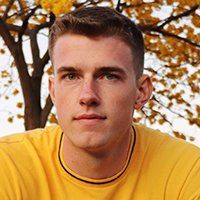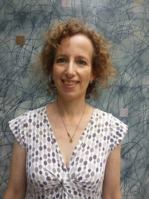Dear Colleagues,
It’s hard on all of us, I imagine, to welcome ourselves to a new year that immediately poses so many difficult challenges. Like it or not, as summer enters its last month, we’re looking at an academic year that will be full of both hardships and uncertainties. I won’t argue here that those challenges contain opportunities. Yet I will say that the University of Illinois and REEEC within it should themselves create opportunities for people to pursue their ambitions and futures based on what they want to do, and not merely on what they have to do. And it’s my hope that as we gather in these crazy times to continue our scholarship, and our work as researchers and educators, REEEC can do just that.
At first glance, it may not look like we’re open: for the Fall, REEEC will be continuing its work remotely, and the office will be closed most of the time. Yet we’re all here to help you as before (just contact us by e-mail) and we have an exciting set of initiatives planned for the year. Indeed, in some ways, the amount and variety of scholarly programming we’re offering this year will be unprecedented. Joining with the other National Resource Centers across the country, we’re co-sponsors of an amazing series of virtual lectures by leading scholars in our field. Our own Professor David Cooper will help launch this NRC Showcase Series with a lecture about his research into the literature and history of forgery: a tremendously timely topic in our own era of deep fakes! Other lectures in this NRC series will feature Harsha Ram, Francine Hirsch, Marianne Kamp, Jessica Robbins, and our own alumna Theodora Dragostinova.
Each year, REEEC hosts its own New Directions series, and this year is no exception. We’ll be kicking off this Fall on September 3rd with a roundtable meant to help our community confront the vital questions (and needed new directions) posed again in the US by the killing of George Floyd and the Black Lives Matter movement. Featuring opening remarks by Gene Avrutin, Valeria Sobol, Justin Balcor and Alejandra Pires, this event will consider two intertwined questions. What can perspectives drawn from our region offer current discussions about the study of race and systemic racism, in the US and elsewhere? What role have race and racism played in the constitution of our field, and what can we do about that? One goal of this session is to help formulate new initiatives and lines of inquiry that can shape the future of our program and the larger field of REEES going forward, so I do hope you will be able to join us and share your thoughts and ideas.
On September 22 our New Directions series will continue with an exciting team presentation by Professor Emily Wang (German and Russian) and Professor Korey Garibaldi (American Studies) from Notre Dame University: “Interrogating the Declining Significance of Pushkin’s Blackness: Henry James, Ivan Turgenev, and Literary Nationalism.” On October 8, Professor Valeria Sobol will participate in the HRI’s Medical Humanities event, “Global Spread: COVID in the World.” Later in October, we’ll be hearing from Dr. Diana Kurkovsky West, a historian of technology at Auburn University, who will talk about her research into the role of ‘big data’ in late Soviet culture.
This is a preview of some of the programming we have planned for this year: there’s a lot more to come. For details on these and other events, please watch your e-mail boxes and consult our website. (Speaking of the website: we’ve got a new one launching in just a couple of weeks! Expect a new-look REEEC page starting in early September).
If that’s the immediate future, in this review newsletter you’ll find out a lot about what REEEC and our affiliates have been up to this summer. And it was a busy one! In collaboration with our colleagues at the Slavic Reference Service, we responded to the emergence of the COVID-19 pandemic by shifting the Summer Research Laboratory to a virtual format. This went extremely well–you can read about some of the Lab’s work here–and I’m also glad to say that thanks to special permission from our funders at the US Department of State we are able to invite this year’s Lab participants to visit Champaign-Urbana next summer, with their housing and travel and research stipends intact.
We also received the news that our new 2020 Title VIII grant proposal was approved. So we’ll be having a new SRL funding call for applications this Fall, as well as (knock on wood) an especially large and rich Summer Research Lab in 2021!
Last, and most importantly, we’re happy to welcome two new MA students to our program. Sam Waitt comes to us from Furman University, and is interested in the politics and culture of contemporary Poland. Tabbey Cochran, who graduated from Macalaster College and spent several years in Ukraine, will be pursuing interests in Russian and Soviet history, and is also enrolled in our dual degree program with the iSchool. Welcome, Tabbey and Sam!
There’s a lot more to say, but let me close here with what’s most important. For over sixty years, under one name or another, REEEC has sought to help the students and scholars of the University of Illinois at Urbana-Champaign chart directions of their own choosing for themselves and our field of scholarship. We’ll be here again to do that in 2020-2021, despite everything. Please don’t hesitate to contact us with your thoughts and ideas and ambitions at any time: we look forward, now as ever, to working with you!
Sincerely,
On behalf of REEEC,
John
John Randolph
Director, REEEC
Associate Professor of History

















